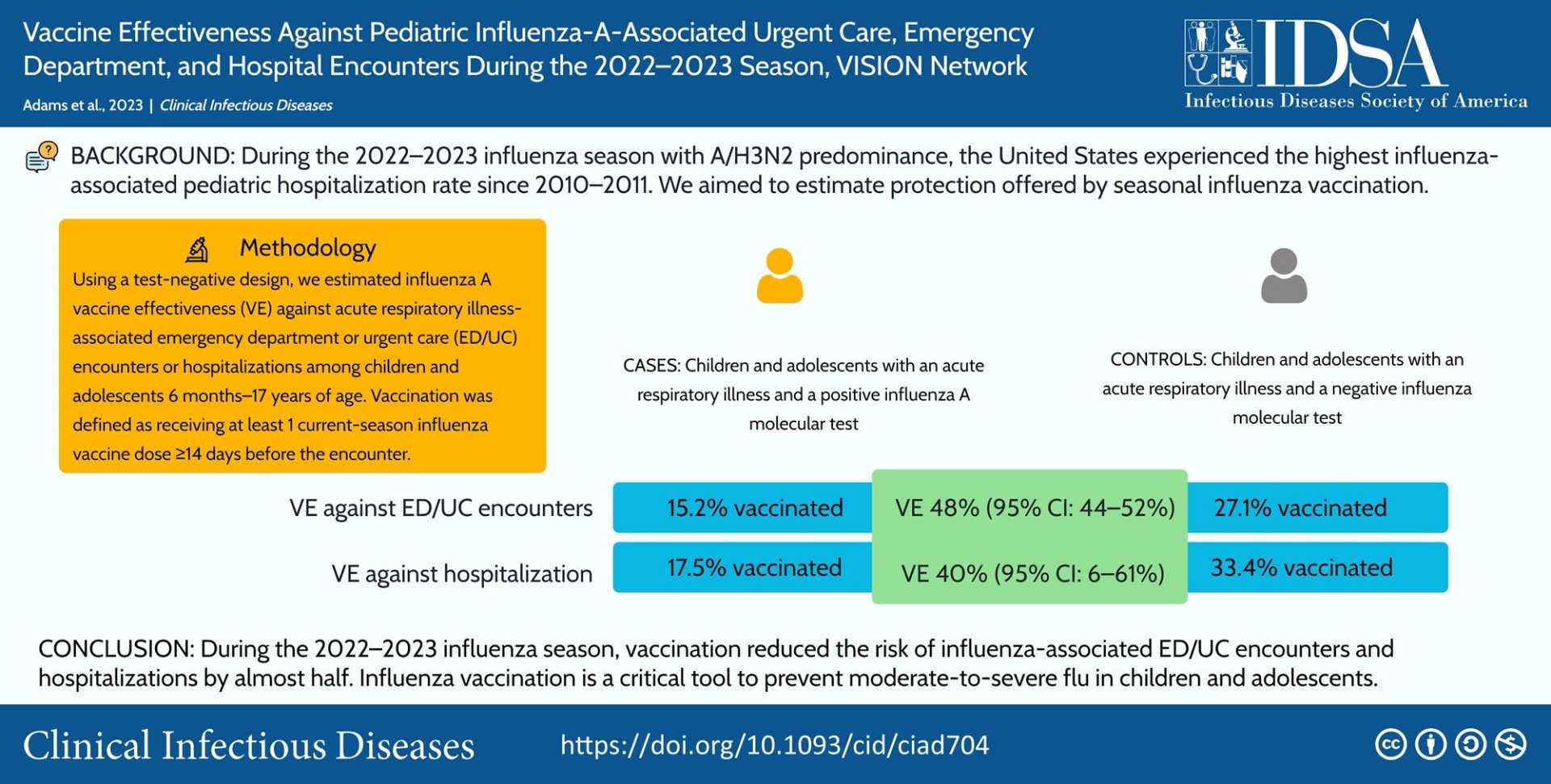Health
New Study Questions Effectiveness of Flu Vaccine Amid Concerns

CLEVELAND, Ohio — A new study from the Cleveland Clinic raises significant concerns regarding the effectiveness of this season’s influenza vaccine. While the vaccine is recommended annually for all Americans ages 6 months and older, the research suggests it may not provide the expected protection.
The preprint study, released on MedRxiv.org, analyzed infection data for the 2024-2025 flu season, focusing on 53,402 Cleveland Clinic employees in northern Ohio. The findings indicated that employees who received the influenza vaccine experienced a 27% increase in respiratory viral infections compared to their unvaccinated counterparts over a 25-week period.
The Cleveland Clinic emphasized the vaccine’s original purpose in a statement to Fox News Digital, noting, “The influenza vaccine can be highly effective in reducing the severity of illness, preventing hospitalizations, and minimizing overall health impacts, but its effectiveness can vary depending on the virus strain and individual factors such as age and underlying health conditions.”
Despite prior publications from these researchers on vaccine effectiveness in prominent journals, this particular study remains unpeer-reviewed. Researchers acknowledged several limitations in their study, including the extensive use of the trivalent inactivated influenza vaccine, which comprised about 99% of the vaccinations among the participants. They suggested the possibility that alternative influenza vaccines might have provided better protection.
“This study found that influenza vaccination of working-aged adults was associated with a higher risk of influenza during the 2024-2025 respiratory viral season, suggesting that the vaccine has not been effective in preventing influenza this season,” the researchers stated.
The analysis did not include comparisons of flu-related hospitalizations or deaths, nor did it assess whether the vaccine lessened illness severity. The population studied lacked children and included very few elderly or immunocompromised individuals.
The Cleveland Clinic further clarified, “The results do not suggest that vaccination increases the risk of flu. Instead, the study implies that the effectiveness of this season’s vaccine in preventing influenza may have been limited in relatively healthy healthcare workers.”
Dr. Marc Siegel, a clinical professor of medicine at NYU Langone Health and a Fox News senior medical analyst, reviewed the study and labeled its conclusions as “misleading.” He noted that the study’s observational design does not prove that the vaccine fails to reduce pathogen spread.
“The biggest bias I see is that it is comparing vaccinated healthcare workers, who make up 80% of flu-vaccinated individuals, with general population illness trends. Given healthcare professionals’ higher exposure rates, the infection rate may be expected to be higher whether vaccinated or not,” Siegel explained.
Siegel indicated that the study misused terminology around ‘effectiveness’ and emphasized the vaccine’s role in decreasing severity rather than infection spread. He argued that a more accurate measure of effectiveness should be hospital admission rates or visits to urgent care, which typically drop significantly due to vaccine administration.
Dr. Jacob Glanville, CEO of the San Francisco biotechnology company Centivax, noted that the study awaits a thorough peer review process, which would validate its statistical analyses and overall design.
“I still advise my patients that receiving the flu vaccine may lessen the seriousness of flu cases, even if they do contract the virus. It’s also crucial to assess whether any discouragement exists in reporting illness among non-vaccinated staff,” Glanville said.
Dr. Mike Sevilla, a family physician based in Salem, Ohio, concurred with the findings suggesting the vaccine’s limited effectiveness this year. He cited that historical effectiveness rates have varied significantly, ranging from 10% to 60% in prior years. Sevilla acknowledged observing increased flu cases this season, yet he did not find them particularly severe.
“I continually remind my patients that even if they contract the flu, the vaccine may reduce the severity of their illness compared to those who do not get vaccinated,” Sevilla shared.
Fox News Digital attempted to contact the researchers from the Cleveland Clinic for additional insights but had not received a response at the time of publication.
Melissa Rudy contributes as a senior health editor at Fox News Digital.












